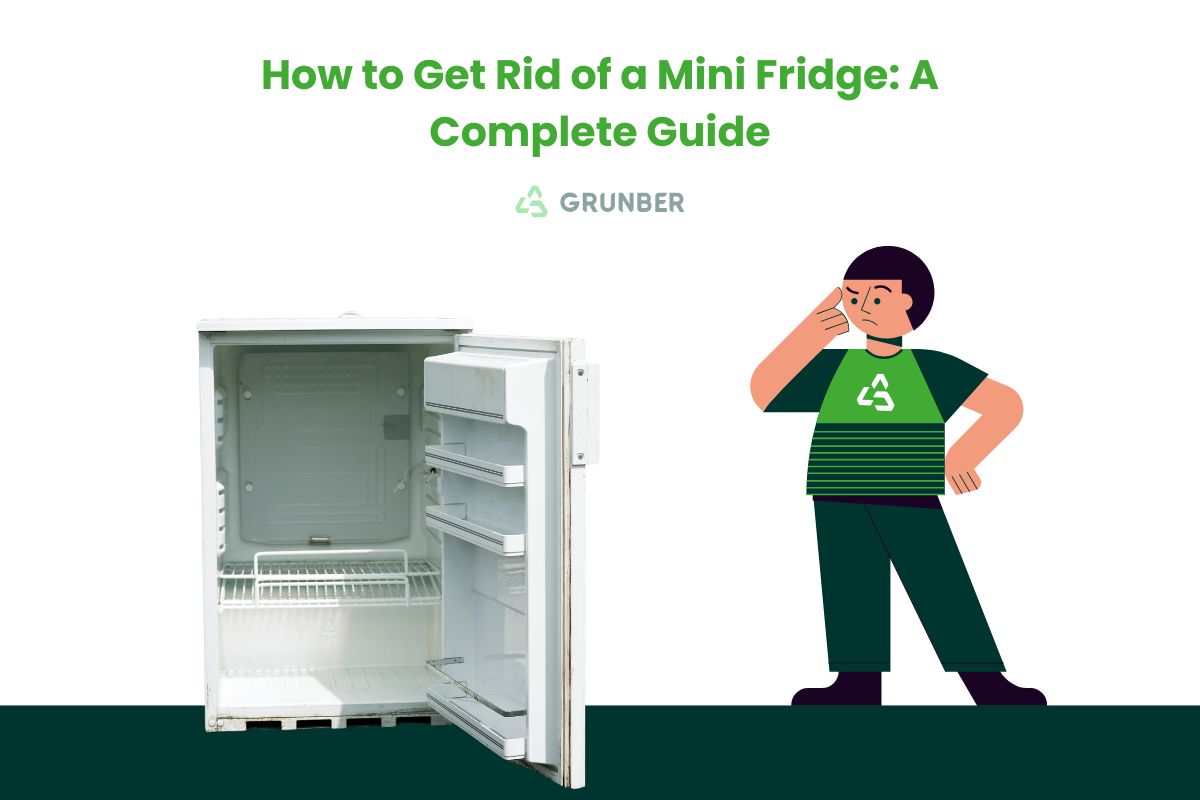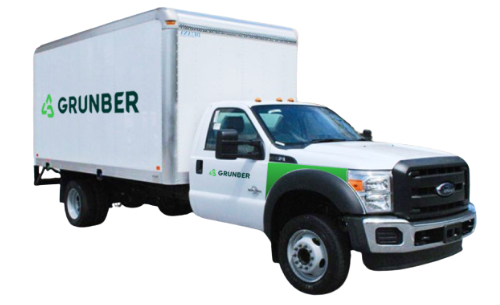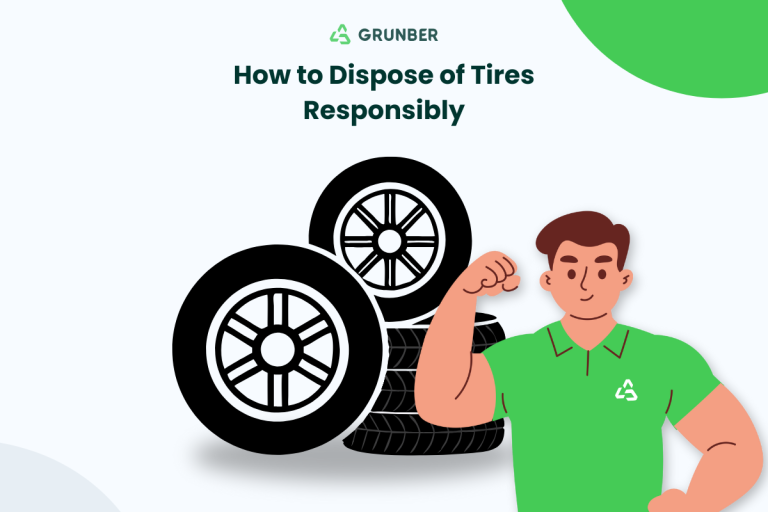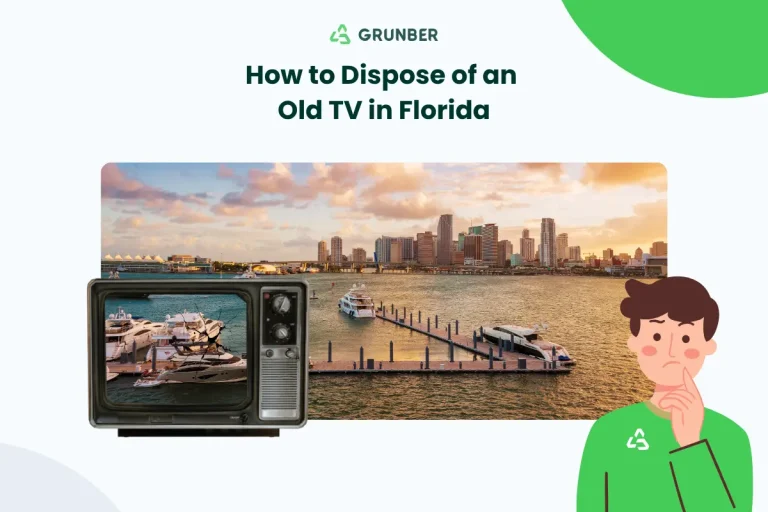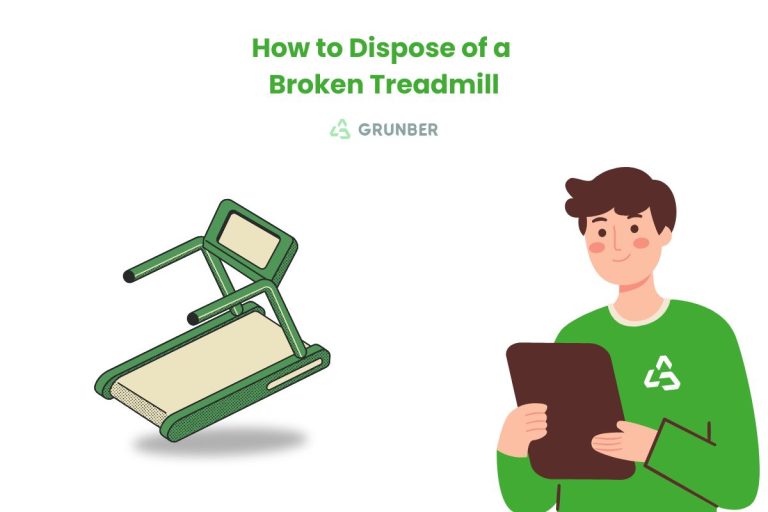Disposing of a mini fridge might sound straightforward, but it’s more complex than hauling it to the curb. A mini fridge contains refrigerants and other components that can harm the environment if handled improperly.
Whether you’re upgrading to a larger unit or simply no longer need your old one, it’s crucial to follow responsible mini fridge disposal practices to safeguard both your community and the planet. Below, you’ll learn how to dispose of a mini fridge correctly—covering everything from local regulations to recycling and professional hauling services.
You may also be interested in:
Understanding the Risks & Regulations
Before deciding what to do with a mini fridge, it helps to know why proper disposal matters. Mini fridges often contain hydrochlorofluorocarbons (HCFCs) or hydrofluorocarbons (HFCs) in their cooling systems. These chemicals, if released, can contribute to ozone depletion or climate change. Many localities in the U.S. have enacted strict guidelines to ensure safe disposal:
- Municipal Restrictions: Some cities and counties prohibit throwing large appliances like refrigerators—no matter their size—into regular trash. You may have to schedule a special pickup or drop-off.
- Freon Removal Requirements: Freon or other refrigerants typically need to be extracted by a licensed technician before the fridge can be recycled or scrapped.
- Possible Fines: Improperly placing a mini fridge on the curb or in unauthorized areas can result in fines.
Local regulations vary, but here are some examples of disposal rules in major U.S. cities:
| City | Regulation |
|---|---|
| New York, NY | Prohibits disposal of appliances containing refrigerants in regular trash. Requires scheduling a special pickup and removal of refrigerants by licensed technicians. Fines may apply for improper disposal. |
| Los Angeles, CA | Requires all appliances containing refrigerants to be recycled properly. Offers collection programs for large appliances, including mini fridges. |
| Chicago, IL | Prohibits disposal of appliances with refrigerants in regular trash. Professional removal of refrigerants is required before recycling. |
| Houston, TX | Provides collection services for large appliances but requires refrigerants to be removed by certified technicians before pickup. |
| Philadelphia, PA | Residents must schedule the pickup of appliances containing refrigerants and ensure refrigerants are removed by licensed professionals. |
In addition to local guidelines, the U.S. Environmental Protection Agency (EPA) enforces federal regulations under 40 CFR Part 82, Subpart F. These laws require the safe handling of refrigerants to prevent environmental harm.
To confirm current rules in your area, search your local government’s waste management website or contact them directly. Following these steps ensures you dispose of your mini fridge responsibly, protecting the environment and avoiding potential fines.
Best Methods for Disposing of a Mini Fridge
A mini fridge isn’t like a standard piece of e-waste; it has particular parts that need specialized handling. Fortunately, there are multiple responsible ways to move it along to its next chapter.
1. Donate Your Working Mini Fridge
If the unit is still functional, it can be a true gift for someone else. Local charities and thrift stores like Habitat for Humanity ReStore or Goodwill might accept small appliances in good condition. Always call ahead to confirm they have space and are accepting mini fridges.
2. Sell or Trade It Online
Another way to keep a working appliance out of the landfill is by selling or trading it on platforms such as Facebook Marketplace, Craigslist, or eBay. You might even find someone eager to swap for an item you need. This approach not only reduces waste but can earn you a little extra cash.
3. Recycle It Through a Certified Facility
For fridges that have stopped working, recycling is often the most eco-friendly solution. Seek out a local EPA-certified recycling center that handles appliances containing refrigerants. These facilities safely remove hazardous components before recycling the metal, plastic, and glass parts.
4. Hire a Professional Junk Removal Service (Like Grunber)
Lifting and transporting a mini fridge can be tricky—especially if you live in an apartment building or have limited mobility. Grunber offers a straightforward solution: they’ll pick up your fridge, handle the cumbersome details, and ensure it’s disposed of in compliance with local and environmental regulations.
Interested in our junk removal services? Explore our most popular options tailored to your area:
These cities aren’t near you? No problem! Grunber offers junk removal services across almost the entire US. Just give us a call to check availability.
5. Check Community Drop-Off or Bulk Pickup Events
Some municipalities organize community-wide collection days for large items, including appliances. On designated weekends or special events, residents can drop off bulky items for safe disposal or recycling—often at no extra charge. Check your city’s public works or waste management department for upcoming bulk pickup days.
Steps to Recycle a Mini Fridge Safely
If recycling is your chosen route, here’s how to prepare:
- Remove All Contents: Unplug the fridge and clear out any leftover food or beverages. Give the interior a quick wipe-down.
- Detach the Doors (If Required): Some facilities ask that appliance doors be removed to prevent accidents, particularly if the fridge will be left waiting for pickup.
- Schedule Coolant Removal: Confirm whether the recycling center offers refrigerant extraction. If not, you might need to hire a professional to remove Freon beforehand.
- Transport Carefully: If you’re driving it yourself, secure the fridge upright in your vehicle to avoid coolant leaks or additional damage.
- Confirm Operating Hours & Fees: Always call or check the facility’s website for any handling fees. Have payment ready if needed.
Following these steps helps guarantee you’re not releasing harmful chemicals and that usable parts get recycled appropriately. How to recycle a mini fridge is simpler than it sounds when you plan it out.
Mini Fridge Disposal FAQs
Is It Legal to Put a Mini Fridge on the Curb?
In most areas, you can’t just leave a mini fridge on the curb for regular trash collection. You typically need to arrange a special bulk pickup or use a licensed removal service. Always verify with your local sanitation department to avoid violations.
Can I Recycle My Mini Fridge for Free?
Some utility companies offer rebates or free recycling programs for older but functioning refrigerators. Bulk pickup events may also waive fees. Check with your local power company or recycling centers to see if any free programs are available in your region.
How Long Does It Take for a Mini Fridge to Break Down in a Landfill?
Appliances don’t decompose in a straightforward way because they contain metal, plastic, and refrigerants. Metal parts can linger for hundreds of years, and plastics may never break down entirely. Recycling recovers these materials for new uses, significantly reducing landfill impact.
Are There Special Regulations for Commercial Mini Fridge Disposal?
Yes. Businesses, dormitories, or property managers looking to dispose of multiple units might face additional restrictions and fees. Always consult your municipality’s commercial waste regulations and consider partnering with an appliance recycling program or a professional removal service like Grunber.


